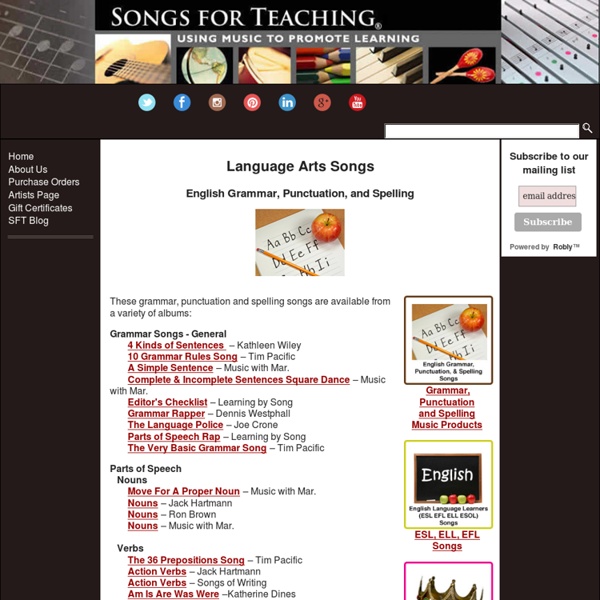



Learn English Punctuation - English Punctuation Rules For example:-"Could everyone sit down please," said the teacher. Another general rule is to use a comma after the introduction to quoted speech or writing. For example:- Jamie said, "I love you." Sometimes when writing a spoken sentence it is split in two. The speech marks must then be placed at the beginning and end of each part of the sentence. For example:-"I wonder," she said quietly, "whether people will ever truly understand each other." However if you need a question mark or exclamation mark the markers that punctuate the quoted words are enclosed by the speech marks. Spot the difference:- "I don't understand", replied Nathan. "Do you understand?" "I don't understand!" !
Why Learn to Punctuate? Why should you learn to punctuate properly? After all, many people have made successful careers without ever learning the difference between a colon and a semicolon. Perhaps you consider punctuation to be an inconsequential bit of decoration, not worth spending your valuable time on. Or perhaps you even regard punctuation as a deeply personal matter — a mode of self-expression not unlike your taste in clothes or music. Well, punctuation is one aspect of written English. Yet it is quite possible that you do things that are every bit as strange and bewildering when you punctuate your writing. The problem with poor punctuation is that it makes life difficult for the reader who needs to read what you've written. When we speak English, we have all sorts of things we can use to make our meaning clear: stress, intonation, rhythm, pauses — even, if all else fails, repeating what we've said. We had one problem only Janet knew we faced bankruptcy Have you decided?
The Basics of Punctuation Punctuation is the system of signs or symbols given to a reader to show how a sentence is constructed and how it should be read. Sentences are the building blocks used to construct written accounts. They are complete statements. Punctuation shows how the sentence should be read and makes the meaning clear. Every sentence should include, at least, a capital letter at the start a full stop, exclamation mark or question mark at the end. The Basic Signs of Punctuation the comma , the full stop . the exclamation mark ! The Comma (,) The comma is useful in a sentence when the writer wishes to: pause before proceeding add a phrase that does not contain any new subject separate items on a list use more than one adjective (a describing word, like beautiful) For example, in the following sentence the phrase or clause between the commas gives us more information behind the actions of the boy, the subject of the sentence: The boy ran quickly towards the opening door. For example: For example: “Help! “Ha!